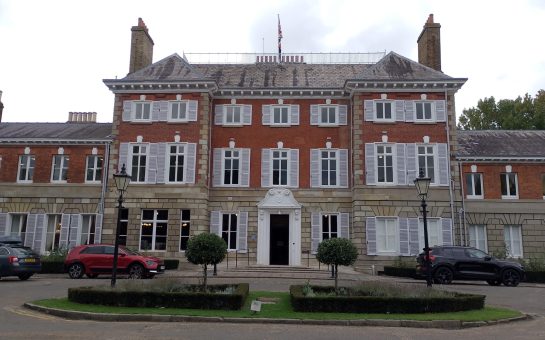The number of women and girls being identified or treated for Female Genital Mutilation (FGM) has increased, according to NHS data.
Data from NHS England Digital showed that the average number of NHS attendees where FGM was identified or a procedure for FGM had been undertaken has increased to 3,930 in 2023, up from 2,258 in 2015.
Sahar Haq, a 22-year-old nursery teacher in Twickenham, voiced her concerns about the long-term impact of FGM on psychological well-being.
She said: “FGM would impact brain development in the same way any traumatic event would.
“It can come back as memory repression, which is where people push memories back and don’t actively think about them.”
Abdirachid Fidow, a representative of Good Efforts for Health & Wellbeing (GEHW), a human rights charity based in Fulham and Hammersmith, explained that FGM cases are rising due to the rise of immigration of communities in which FGM is a phenomenon that has been normalised for generations.
He explained: “It takes a lifetime to challenge social norms.”
Sagal Osman, the director of GEHW explained that FGM cases in London, are most common among Sudanese, Eritrean, and Somali communities.
Julie Albert, an FGM specialist from Imperial College London, said that the practice is inherited through patriarchal structures that prevent women from enjoying sexual pleasure.
She added that mothers are often groomed into conducting FGM.
She said: “Grooming is often subtle and women may not be overtly pressured into doing it, but it just becomes a societal pressure, a gendered norm.”
FGM has been illegal in the United Kingdom (UK) under the Prohibition of Female Circumcision Act, of 1985, and the process of families traveling outside the UK and girls from conducting FGM on their daughters in foreign countries is illegal under the Female Genital Mutilation Act 2003.
The data from NHS England also revealed the countries where UK-based FGM survivors were taken abroad to have FGM performed.
Out of 68 countries examined, the vast majority of cases occurred in Somalia, where 685 individuals experienced FGM.
This was followed by Nigeria where 570 individuals were violated, and finally, Sudan, where 460 individuals were abused.
Despite the legal ramifications, Fidow reported that FGM still occurs in the UK because parents or elder family members are often unaware that the practice is illegal.
He said: “When migrant communities come into a new environment or country, they may not fully understand the health risks, the legal ramifications associated with this particular issue.”
However, the data demonstrates that patients who have been identified or are being treated for FGM, are now more aware of the illegalities of what they suffered.
In London itself, 4920 recorded individuals had already been advised of the illegalities of FGM, whereas, only 85 patients were not informed.
Albert explained that individuals who have undergone FGM often do not know that they have FGM or that their health issues are consequenced of FGM because it is something they may have had all their lives.
She said: “They often don’t associate having a urinary tract infection or feeling excruciating pain during sexual intercourse as having anything to do with FGM, especially if they had it done when they were only four or five years old”.
Nonetheless, Fidow said that the data available is often incomplete because many healthcare professionals may lack the training to identify FGM.
Language barriers may limit a woman’s ability to explain that they are a victim of FGM.
Osman added that women who do not have a legal right to remain in the UK or have been rejected as asylum seekers may be hesitant to seek help for FGM due to fear of being deported.
Fidow added: “A woman experiencing economic hardship may struggle to afford transportation to travel to a clinic, a mother struggling to find accommodation for her family is highly likely not to seek medical aid because the immediate problem she is facing is housing instability”.
Campaigners emphasised that it was crucial to demystify stereotypes surrounding FGM.
Albert reported that FGM is often associated with false generalisations, such as the notion that FGM only occurs among Muslim communities, or only occurs in Africa, stating that FGM is prevalent “across the world”.
Fidow explained that common approaches to identifying FGM and protecting victims often give power to prejudicial stereotypes that vilify ethnic-minority communities, portraying them as individuals who are preconditioned to harming young women and children, rather than depicting them as parents who are simply doing what they believe is best for their children.
Osman reported that the government needs to work with charities to raise awareness of FGM and teach its legal ramifications.
She said: “If the NHS wants to help people, they must work with us.”





